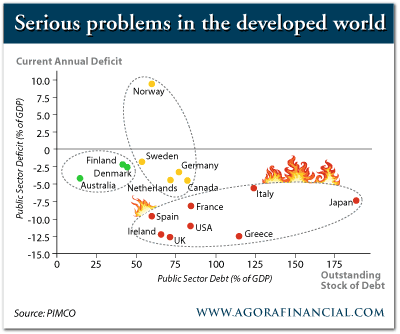Central banks are blowing another asset bubble. Both the technology and real estate bubbles were spawned by cheap credit.
Put simply, when you factor future earnings growth and an expansion in valuations, the developing markets are prime candidates for the next asset bubble.
In our opinion, the next bear-market will only occur when the Federal Reserve is done raising its benchmark rate for this cycle. So, in the next bear-market, instead of financial institutions going bust, entire nations are likely to default. 
If our assessment is correct, towards the end of this bull-market, we are likely to see the following red flags:
- Rising interest-rates
- Surging inflationary-expectations
- Deterioration in the market's breadth
- Diminishing new highs and expanding new lows
- Increasing credit spreads
- Credit concerns
- Spike in the price of crude oil
- Inverted yield-curve
- Extreme investor optimism
However, this bull-market should continue for the next 2-3 years and as long as the primary trend is up, we will remain fully invested in our preferred growth-producing assets. (http://dailyreckoning.com/blowing-bubbles-2/)